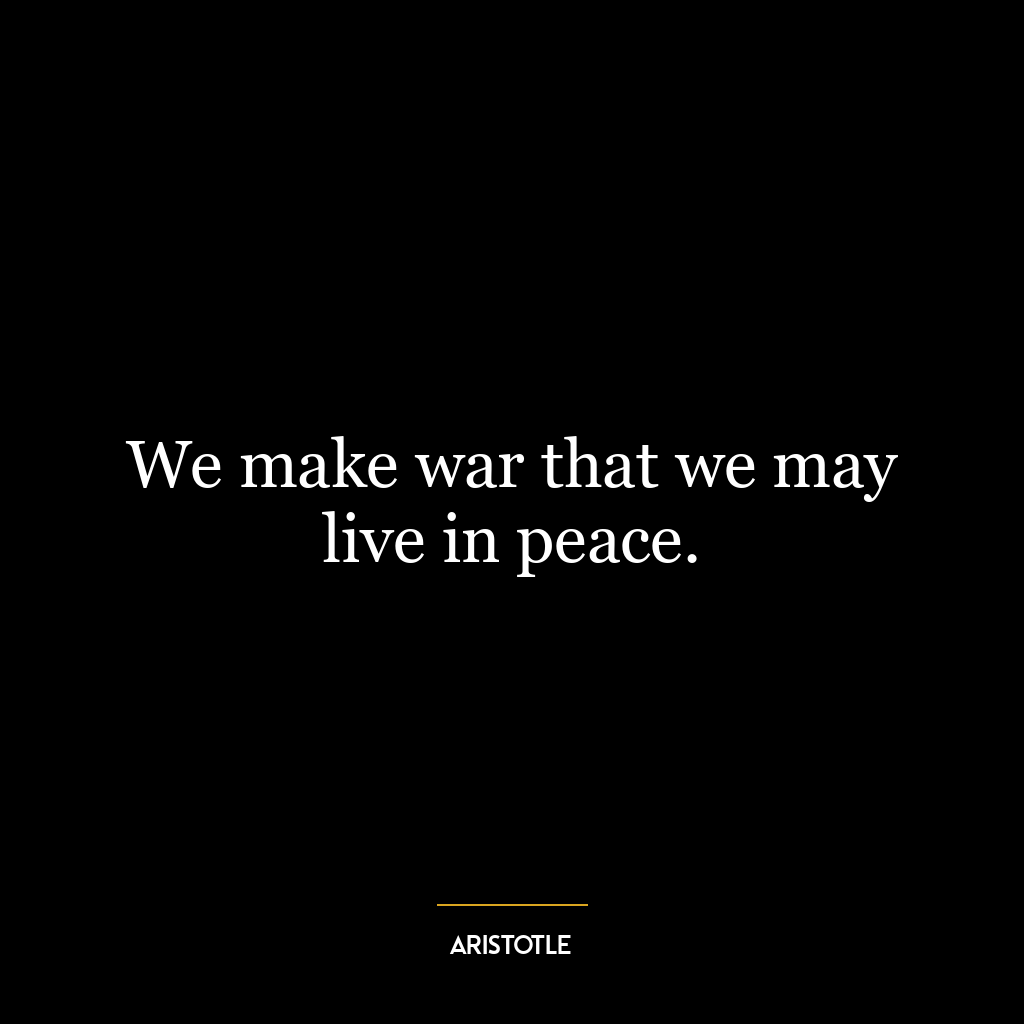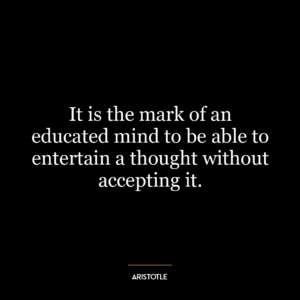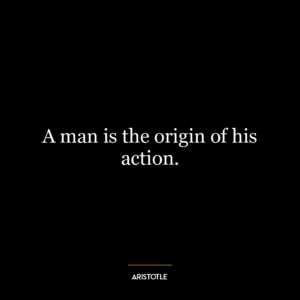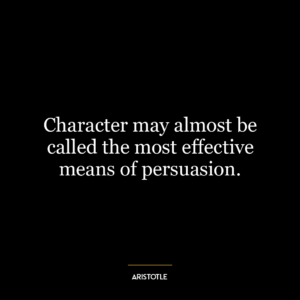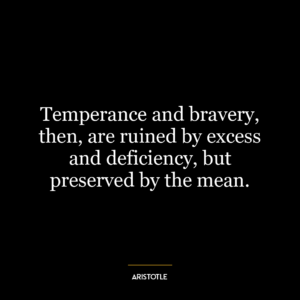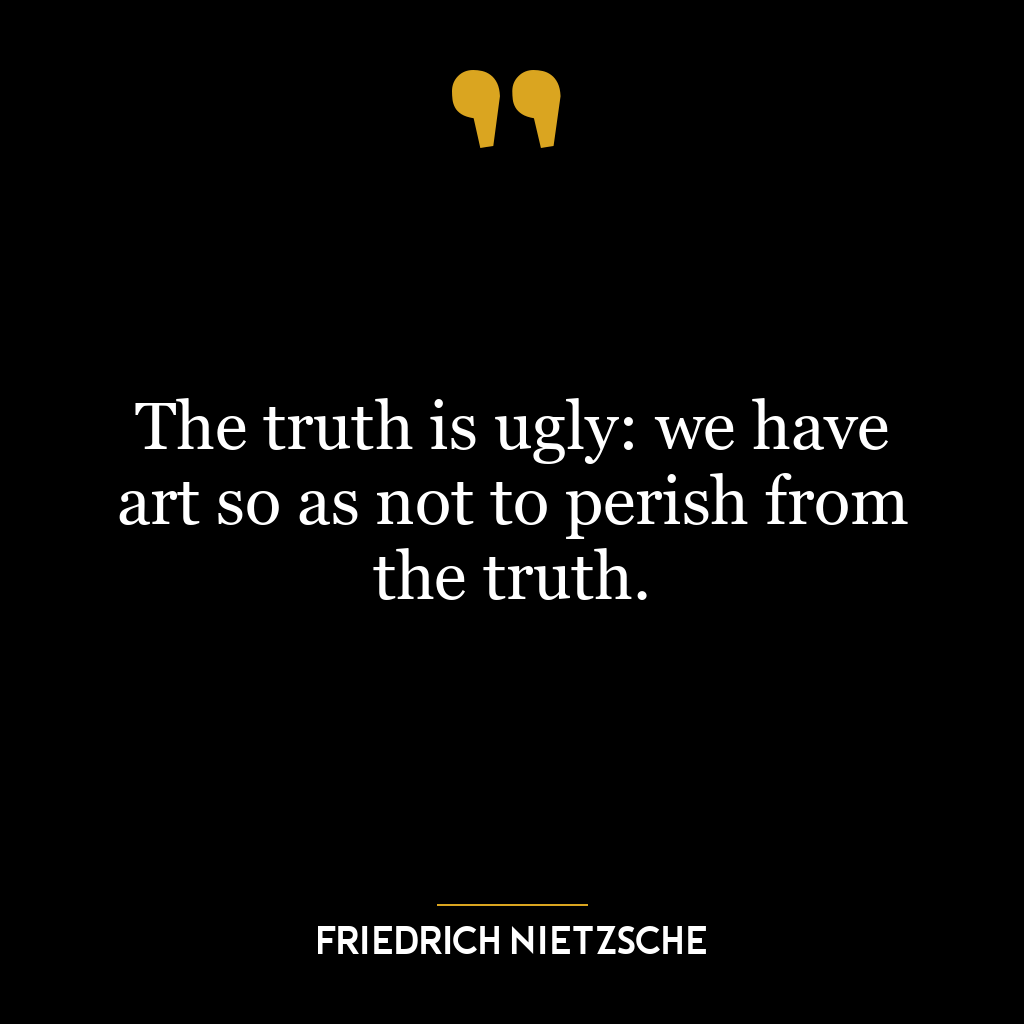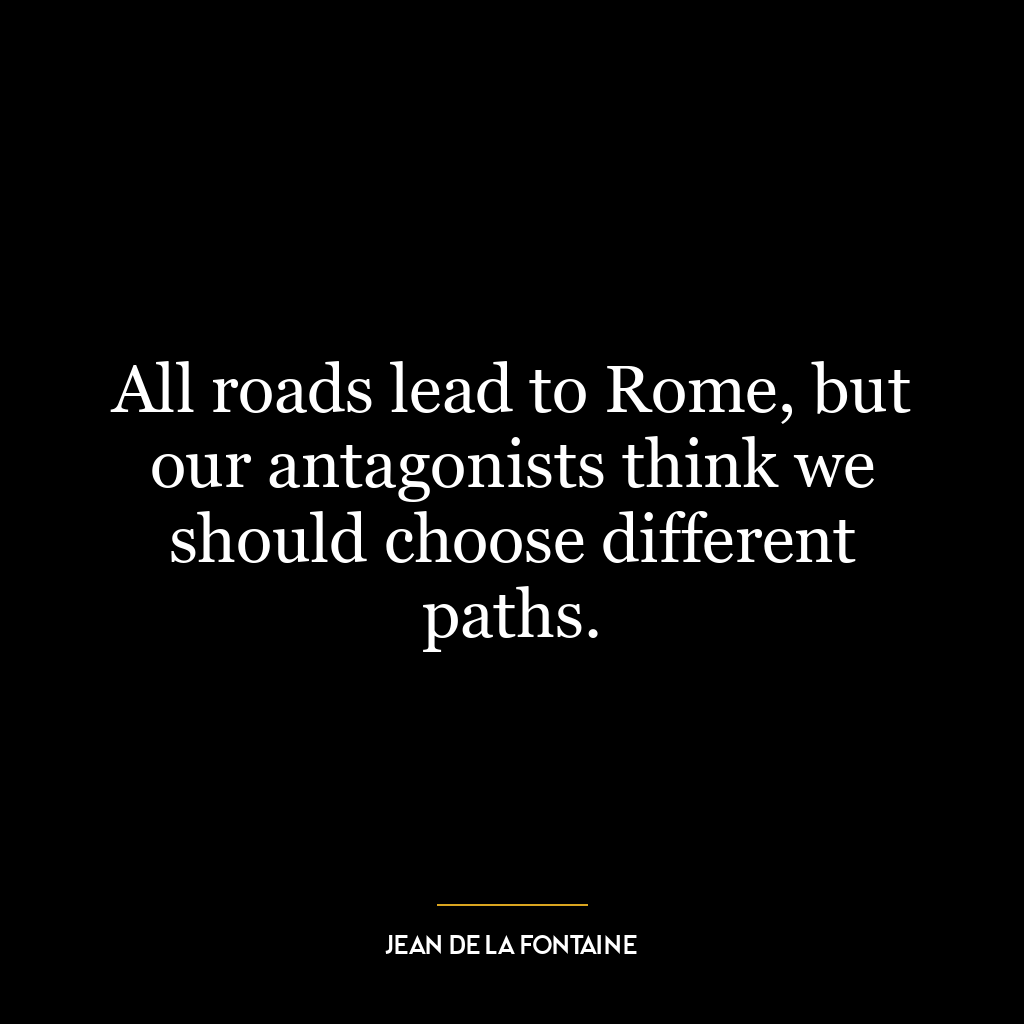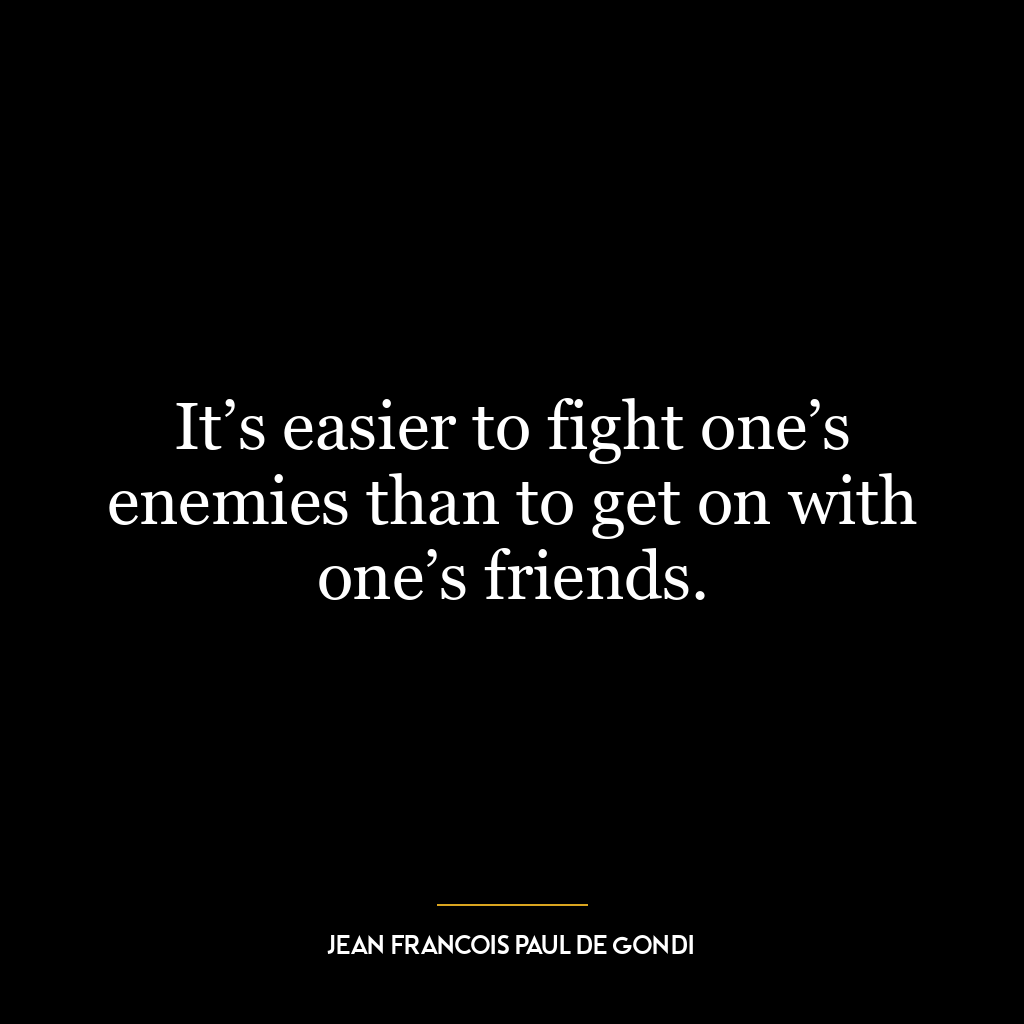“We make war that we may live in peace” is a paradoxical statement that encapsulates the idea that sometimes conflict is necessary to achieve harmony. This quote suggests that war, often seen as a destructive force, can also serve as a tool to secure peace. The aim of war, in this context, is not to perpetuate violence or chaos but to eradicate the elements that disrupt peace, ensuring a peaceful existence in the long run.
This concept can be seen as a reflection of the principle of duality, which asserts that opposites are interconnected and interdependent in the natural world. Just as darkness defines light, war defines peace. The experience of war makes the value of peace more apparent and desirable.
Applying this idea to today’s world, we can observe how nations invest in defense and military power to maintain peace. A strong military is often seen as a deterrent to potential aggressors, maintaining a balance that discourages conflict. However, it’s important to note that this quote is not advocating for war, but rather emphasizing the ultimate goal of achieving lasting peace.
In the realm of personal development, this concept can be translated into the idea that personal growth often comes from facing and overcoming challenges. Just as a nation might go to war to secure peace, individuals often have to go through struggles and conflicts to achieve personal peace and growth. These struggles could be internal, such as overcoming fears or insecurities, or external, like resolving conflicts with others. The process might be uncomfortable, even painful, but it often leads to a better, more peaceful state of being.
In essence, the quote underscores the paradox that in order to appreciate and achieve peace, we sometimes have to experience and navigate through conflict. Whether on a global scale or in personal development, the aim is not to glorify war or conflict, but to highlight the value and significance of peace.

